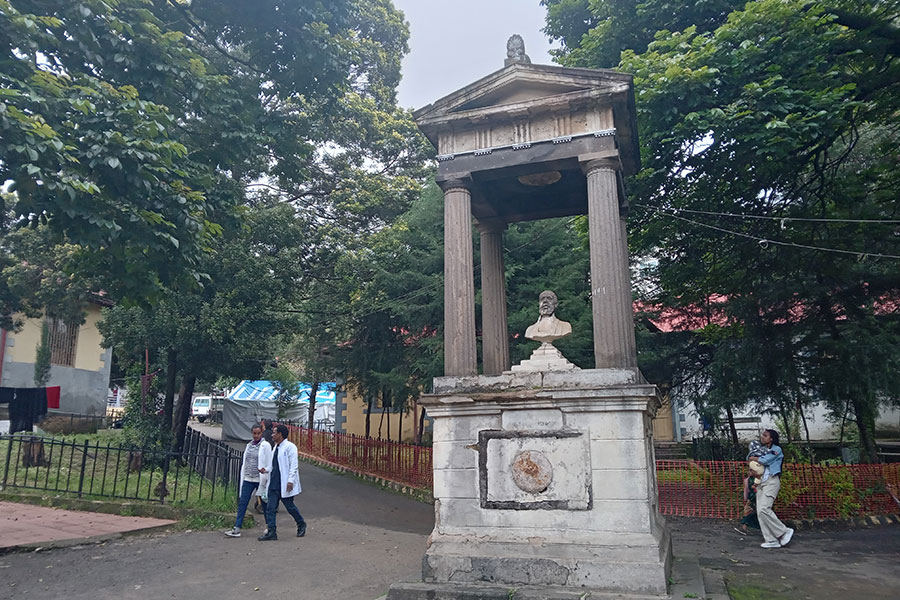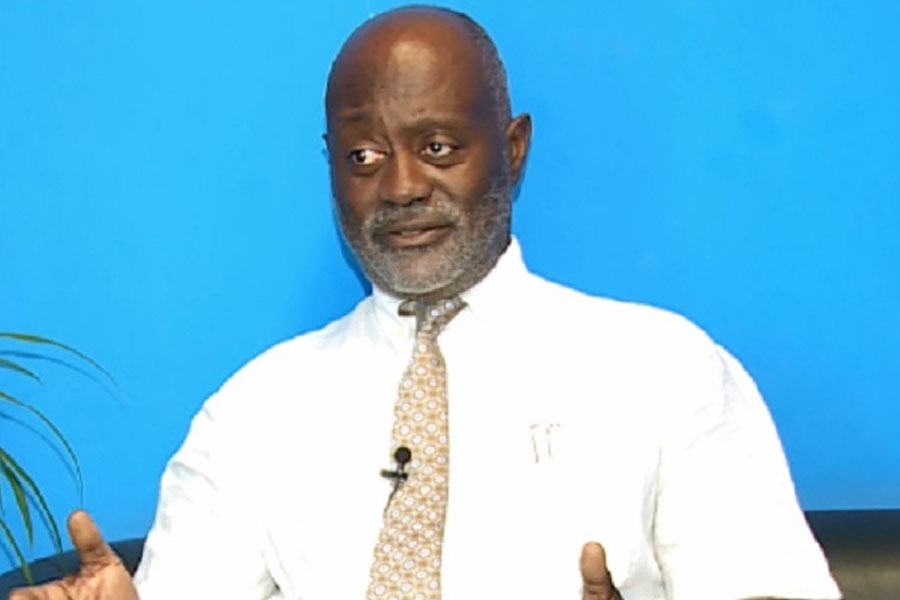
Verbatim | Apr 27,2024
Jul 19 , 2025
By Mikiyas Mulugeta (PhD)
A few months ago, at a café near the Bole Medhanialem neighbourhood, a civil servant made a statement that has resurfaced as Parliament revises the federal tax rules. Between sips of tea, he said to me, “We are taxed not because we are rich, but because we are visible.”
He was not complaining; he was describing how the system feels to those on payrolls that the state can easily reach.
That remark echoes louder after Parliament ratified on July 17, 2025, what officials bill as a sweeping modernisation of the income tax law. The last major reset of personal income tax thresholds was in 2008, when a litre of benzene cost less than 10 Br and TikTok was not yet a thing. By that yardstick alone, change is overdue.
The law widens the net. It pulls in the digital economy, requires electronic reporting for a range of income sources, and imposes a minimum tax on gross revenue even when a business incurs a loss. The top taxable personal rate of 35pc will now apply at 14,000 Br a month instead of 10,900. The tax-free threshold rises to 2,000 Br from 600. On paper, many workers move to lighter brackets.
On the ground, the reception has been mixed. Labour unions, civil society groups and private sector voices, some normally quiet on fiscal policy, have pushed back. Their quarrel is less with the idea of taxation than with its distribution, timing and return. That the state needs revenue is no point of contention. It is emerging from conflict, carrying rising debt obligations and coping with a depreciating currency. However, taxpayers ask who pays, how much, when, and what they get.
Inflation has eroded paychecks; salaries have not kept pace. Living costs climbed while expectations for public services remain modest or unmet. In that climate, reform can feel less like shared citizenship and more like another deduction that falls hardest on formal sector employees, the people who, like the person I met at Bole Medhanialem, are most visible to the taxman.
Business apprehension centres on the minimum tax on gross income. The measure may have targeted a blunt avoidance by firms that chronically report losses. But, it can also catch companies in their investment phase, when cash flows run negative by design. Safaricom Ethiopia, which has poured capital into building out a telecom network and remains in the red, has already called the flat minimum tax “punitive.” It may have a point. Taxing topline revenue before profits materialise risks crimping growth.
We are taxed not because we are rich, but because we are visible.
Another frontier is the digital economy. For the first time, content creators, including YouTubers, TikTok influencers, and online consultants, will be required to register and pay. Fair enough if everyone contributes. The open question remains the capacity for compliance.
Can revenue authorities identify, assess and collect without sowing confusion or nudging young entrepreneurs off the books and back into informality?
Taxation rests on a social contract. Citizens pay, the state delivers services, applies rules fairly and earns trust. For many Ethiopians, the contract is frayed. They pay because they must, not because they believe the system works in their favour. When roads crumble, hospitals run short of supplies or public housing projects stall, people wonder where their money goes.
The Ministry of Finance defends the overhaul as part of a broader push to meet fiscal targets and shrink the federal government’s notorious tax gap. The country’s tax-to-GDP ratio ranks among the lowest in the world. Under the G20 Common Framework for debt treatment, federal authorities have pledged to improve domestic revenue while restructuring external obligations. Undoubtedly, pressure to reform is real. So is the risk of fatigue.
When the tax net widens without a visible payoff in services or fairness, compliance can slip into quiet defiance. Workers and firms shift income off the books, underreport earnings or devise new shelters. The government could push harder yet collect less. Execution will decide the outcome. Progressive taxation needs more than rate tables; it needs empathy backed by enforcement that targets evasion without penalising compliance. Safeguards for vulnerable groups, such as people with disabilities and low-wage workers, should not be an afterthought. They must be embedded early.
Finance officials say they have commissioned a study on the living conditions of civil servants. Good. But studies do not pay rent or buy groceries. The public will judge the law by what shows up in take-home pay and classrooms, clinics and roads, not in binders. Taxpayers will inevitably weigh the revised tax bill in personal terms.
Does the law leave them with more dignity or more despair?
That question will shape compliance as surely as any audit schedule. Ethiopia’s experience has long shown that visibility, not wealth, determines who bears the load; unless reforms broaden capacity to reach the hardest-to-see parts of the economy while improving services, the burden will stay uneven. My friend at the café may have been right to worry.
PUBLISHED ON
Jul 19,2025 [ VOL
26 , NO
1316]


Verbatim | Apr 27,2024

My Opinion | Nov 16,2024

Editorial | May 16,2020

Verbatim | Mar 28,2020

View From Arada | Dec 31,2022

Radar | Aug 05,2023

Sunday with Eden | May 31,2025

Verbatim | Jul 23,2022

Viewpoints | Oct 23,2021

Verbatim | Feb 27,2021

Photo Gallery | 176373 Views | May 06,2019

Photo Gallery | 166587 Views | Apr 26,2019

Photo Gallery | 157085 Views | Oct 06,2021

My Opinion | 136905 Views | Aug 14,2021

Dec 22 , 2024 . By TIZITA SHEWAFERAW
Charged with transforming colossal state-owned enterprises into modern and competitiv...

Aug 18 , 2024 . By AKSAH ITALO
Although predictable Yonas Zerihun's job in the ride-hailing service is not immune to...

Jul 28 , 2024 . By TIZITA SHEWAFERAW
Unhabitual, perhaps too many, Samuel Gebreyohannes, 38, used to occasionally enjoy a couple of beers at breakfast. However, he recently swit...

Jul 13 , 2024 . By AKSAH ITALO
Investors who rely on tractors, trucks, and field vehicles for commuting, transporting commodities, and f...

Oct 18 , 2025
The political establishment, notably the ruling party and its top brass, has become p...

Oct 11 , 2025
Ladislas Farago, a roving Associated Press (AP) correspondent, arrived in Ethiopia in...

Oct 4 , 2025
Eyob Tekalegn (PhD) had been in the Governor's chair for only weeks when, on Septembe...

Sep 27 , 2025
Four years into an experiment with “shock therapy” in education, the national moo...

Oct 18 , 2025 . By NAHOM AYELE
In a sweeping reform that upends nearly a decade of uniform health insurance contribu...

A bill that could transform the nutritional state sits in a limbo, even as the countr...

Oct 18 , 2025 . By SURAFEL MULUGETA
A long-planned directive to curb carbon emissions from fossil-fuel-powered vehicles h...

Oct 18 , 2025 . By BEZAWIT HULUAGER
Transaction advisors working with companies that hold over a quarter of a billion Bir...